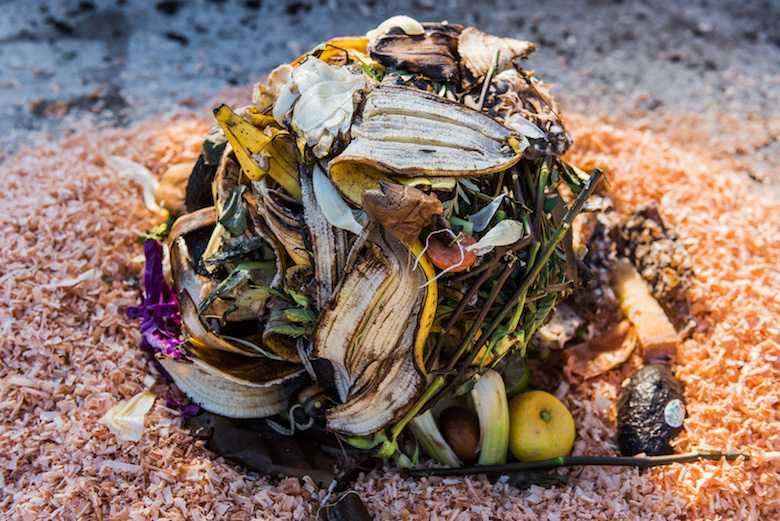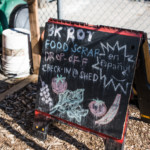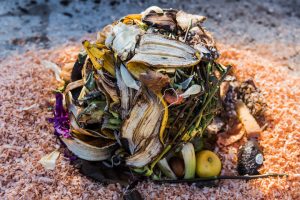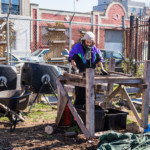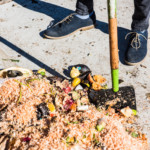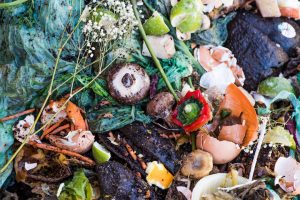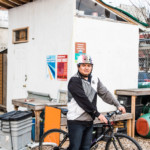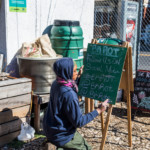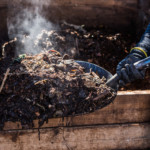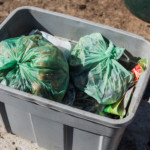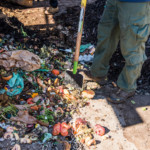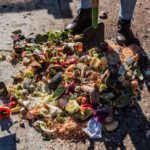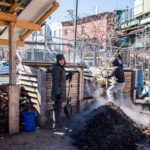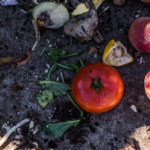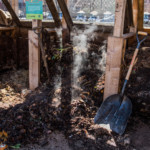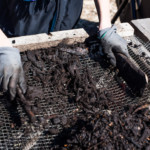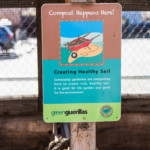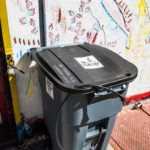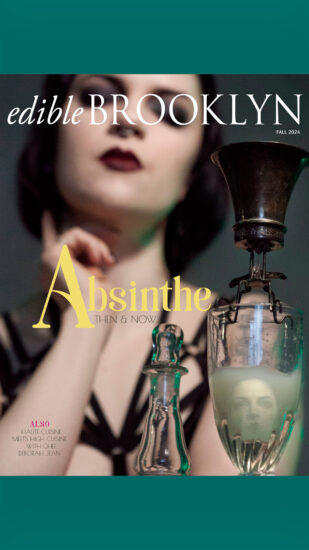
In 2012, Sandy Nurse was making food deliveries on her bike when she had an epiphany: What her Bushwick neighborhood really needed wasn’t food delivery, it was food pickup. Food scrap pickup, to be specific.
According to the New York City Department of Sanitation (DSNY), roughly one third of all of the city’s trash is compostable organic matter. The city’s been offering curbside compost pickup in parts of Brooklyn since 2012, but Bushwick is one of many neighborhoods not yet served (the DSNY hopes to expand this service citywide by 2018).
Nurse—who had previously worked for the U.N.’s World Food Program and helped found Bushwick’s Mayday Space organizing center—isn’t one to sit by and wait for things to happen. She teamed up with another neighborhood organizer, Renée Peperone, and in August 2013 they launched BK ROT, a bike-powered compost pickup service.
Every Sunday year-round, BK ROT’s intrepid bikers pick up compostable food scraps from about 85 households and several businesses in Bushwick and Bed-Stuy and bring them for processing to the Know Waste Lands community garden at Dekalb and Myrtle. Households pay $15 per month for the service while businesses (including Supercrown Coffee Roasters and the Bushwick Food Coop) pay a little more according to their individual contracts. Compost members are issued a 4-gallon bucket, 25 compostable trash bags and a composting tip sheet (“no meat, no eggs, no rubber bands”), and every month, BK ROT turns roughly 6,000 pounds of food scraps into rich soil that they sell to the public by the pound via their website. For a $20 fee, BK ROT will deliver any amount of compost under 200 pounds by bike to addresses within their service area, thus completing the cycle.
Nurse initially thought that BK ROT could be a profitable enterprise and she tested her model by begging friends to let her pick up their scraps. But every aspect of composting is labor-intensive and land is hard to secure (they are now on their third location), so Nurse soon realized that composting would never provide a living wage for adults. She expanded the organization’s mission to include youth job training and incorporated as a 501c3 nonprofit in 2016. Today, BK ROT provides training and paid, part-time jobs for six young people in their teens and early twenties.

BK ROT’s head composter is a high school senior named Jamel Hamilton Wade who joined the team last November after learning about it from his guidance counselor. He’s quickly becoming an avid expert at turning piles of lemon peels, onion skins and cabbage scraps into rich soil. He doesn’t see a compost career in his future, but he is proud of what he has learned. “I feel like this helped me be a more hands-on person,” he says. “I know a lot of things that I didn’t know before.”
Hamilton Wade ensures that the compost is layered correctly (a mix of “greens” and “browns”), and he monitors the internal temperature of the compost to make sure it hovers around 130 degrees, which is optimal for safety. If something goes wrong, things could get a little smelly, but most days, he says the compost almost smells edible. “At first, the smell reminded me of spoiled pasta,” he says. “But after a while it started to smell really good. Sometimes it smells like lemons.”

While the amount of tossed compostables represents a huge opportunity for waste reduction, compost programs aren’t a quick, easy fix. Nurse and Peperone both admit that even an army of high school kids couldn’t process all of the city’s organic waste, but they hope that BK ROT can model a paradigm shift in which issues like waste management are dealt with at the community level in a way that respects local residents and compensates workers for their labor.
“My father was a garbage man—he had a sanitation company—so I grew up understanding that there is no ‘away’ when you throw something out,” Peperone adds. “There are always costs.”


